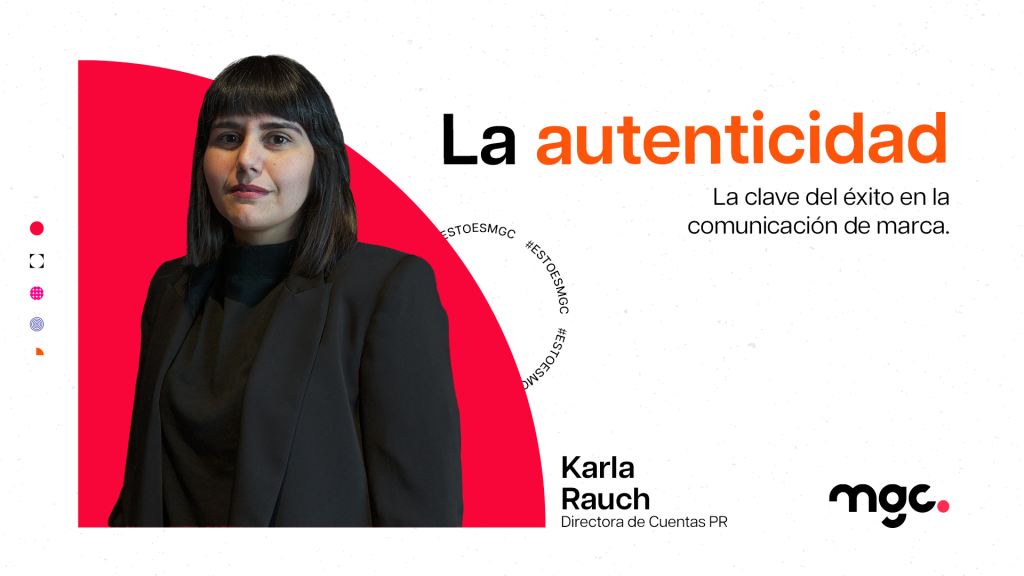
Karla Rauch,
Directora PR MGC.
En un mundo cada vez más impersonal, los consumidores anhelan conexiones auténticas con las marcas que eligen consumir. Por eso, la autenticidad se ha convertido en la piedra angular de las relaciones públicas de marca exitosas.
La autenticidad no es solo una palabra de moda; es una fuerza poderosa que puede hacer o deshacer la reputación de una marca. Cuando los consumidores perciben una marca como verdadera y consistente, son más propensos a confiar, interactuar con ella e incluso convertirse en defensores leales en RRSS.
¿Cómo pueden las marcas construir autenticidad genuina?
Hay tres pilares clave que deben considerar:
- Transparencia: Las marcas que son abiertas y transparentes sobre sus procesos, servicios, productos y prácticas —desde la obtención de materias primas hasta los procesos de fabricación— generan confianza y lealtad con su audiencia. La transparencia demuestra que una marca no tiene nada que ocultar, fomentando una sensación de credibilidad.
- Consistencia: Las marcas auténticas no cambian sus valores o mensajes para seguir las tendencias a corto plazo o complacer a un determinado grupo demográfico. Estas se mantienen firmes en su compromiso con sus principios fundamentales. Esto refuerza la autenticidad de una marca, pero a la vez la ayuda a destacar en el mercado y frente a su competencia.
- Responsabilidad social: Ante la preocupación de los consumidores por el impacto de las compañías en la sociedad y el medio ambiente, las marcas que participan activamente en prácticas éticas, apoyan causas sociales y se esfuerzan por reducir su huella de carbono es más probables que sean vistas como auténticas.
Lograr la autenticidad tiene múltiples desafíos, y las marcas deben tener cuidado de no abrazar superficialmente, sin un compromiso genuino, las causas que abordan de cara a la opinión pública y su comunidad. Lo anterior tiene el efecto contrario y tiende a dañar su reputación. Las marcas que priorizan la autenticidad construirán relaciones sólidas y duraderas con sus clientes, lo que les ayudará a alcanzar sus objetivos.


